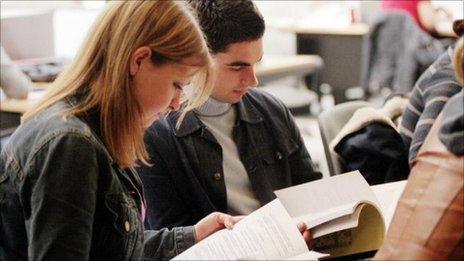Scottish universities move to overhaul admissions
- Published
- comments
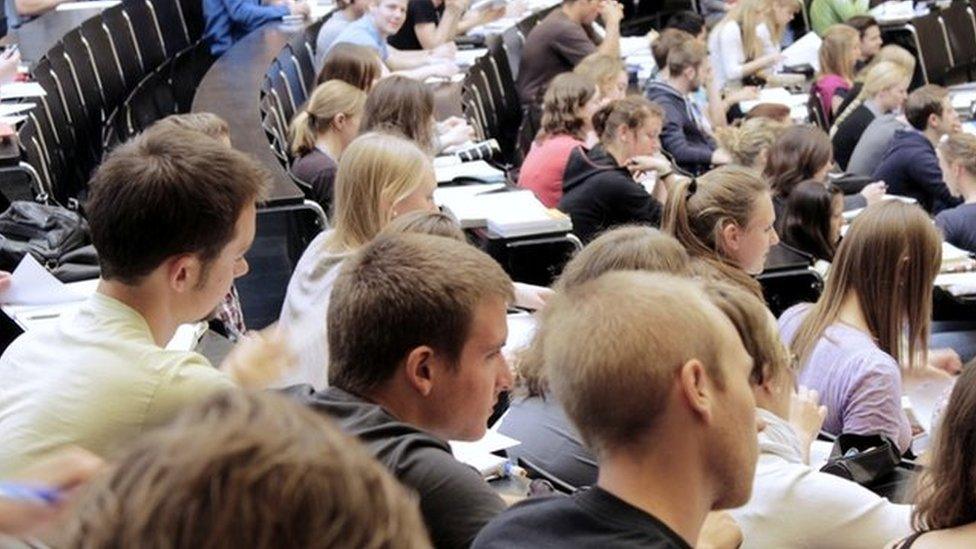
Scottish universities are planning big changes to their admissions system to help increase the number of students from disadvantaged areas.
The plans will mean less attention being paid to an applicant's exam results.
Instead, universities will look more at the applicant's skills, experience or potential.
The Scottish government said the plan may not go far enough to reach targets for change.
Under the plan, applicants from disadvantaged backgrounds may not need exam results to be as good as those achieved by others - but exam results alone will not guarantee them a place unless they have been in care.
The Scottish government wants 20% of students at all Scottish universities to come from Scotland's most disadvantaged areas by 2030.
'Contextualised admissions'
The biggest change proposed by Universities Scotland concerns the admissions system.
They want to move to what they call "contextualised admissions" - a candidate will normally only need exam marks which meet a certain threshold.
The decision on whether to actually offer them a place will take far more than their exam results into account.
The work on this has been led by Prof Sally Mapstone, the principal and vice-chancellor of the University of St Andrews.
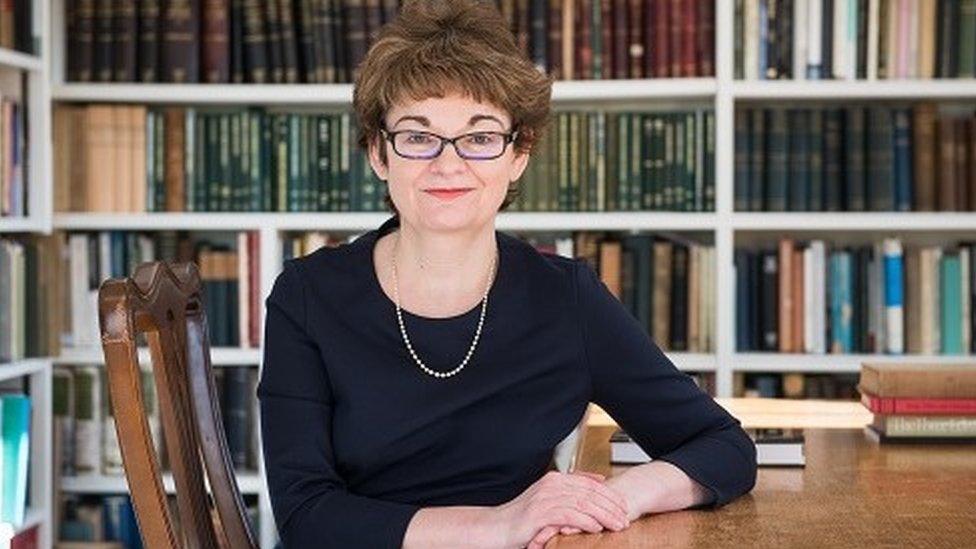
Prof Sally Mapstone said she was confident the changes would help more prospective students
She said: "Scotland is taking a big step forward with contextualised admissions in a concerted bid to widen access at a faster rate.
"Universities will set minimum entry requirements for all courses: we will be very clear to whom this applies; and, we will use consistent, user-friendly language to describe the process.
"We want to ensure that all potential applicants from disadvantaged and non-traditional backgrounds understand that they are welcome, supported and belong at the heart of our universities.
"We are confident that making these changes will help more prospective students, and their advisers, to realise that opportunities are there, within touching distance."

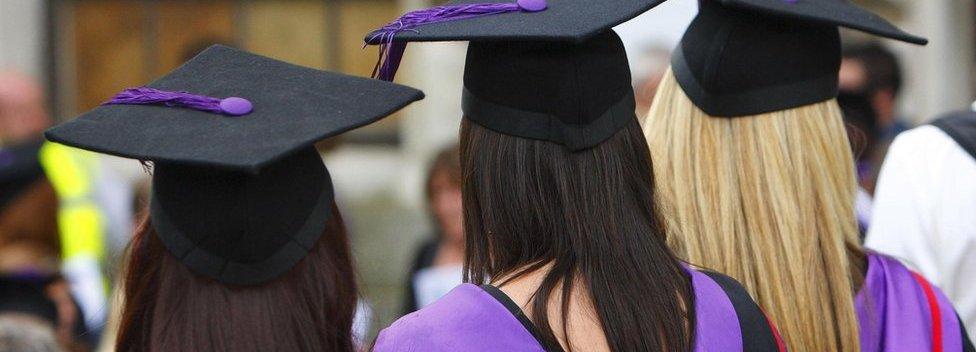
How will the system work?
Universities will publish the minimum entry requirements needed for each course which starts in 2020.
The requirements may be lower for applicants from disadvantaged backgrounds.
But, crucially, universities will not actually guarantee a place to those who meet that minimum standard - except when the applicant has been in care.
If a youngster successfully takes part in a university outreach programme, that could add to their chances of getting a place.
On other occasions, more attention could be paid to the personal statements made by youngsters on their application forms or on how well they do at interviews or on assessment days.

The aim of this change is to reduce the importance of so-called "competitive entry requirements" - the need for exam results far better than those which are necessary to simply demonstrate the ability to do the course.
Youngsters who want a place on the most prestigious courses often need marks in their Highers or Advanced Highers far in excess of that minimum.
However, universities were wary of simply lowering the grades needed by disadvantaged applicants to get a place. They want to ensure the people they give places to have a good chance of completing the course and do not want to see a large rise in the drop-out rate.
This proposed change builds on the work which some universities and admissions officers have been doing in recent years.
Other measures planned by universities include:
More action to allow college students to go straight into university courses
Greater clarity to applicants from disadvantaged backgrounds and their advisers on how their circumstances will be taken into account
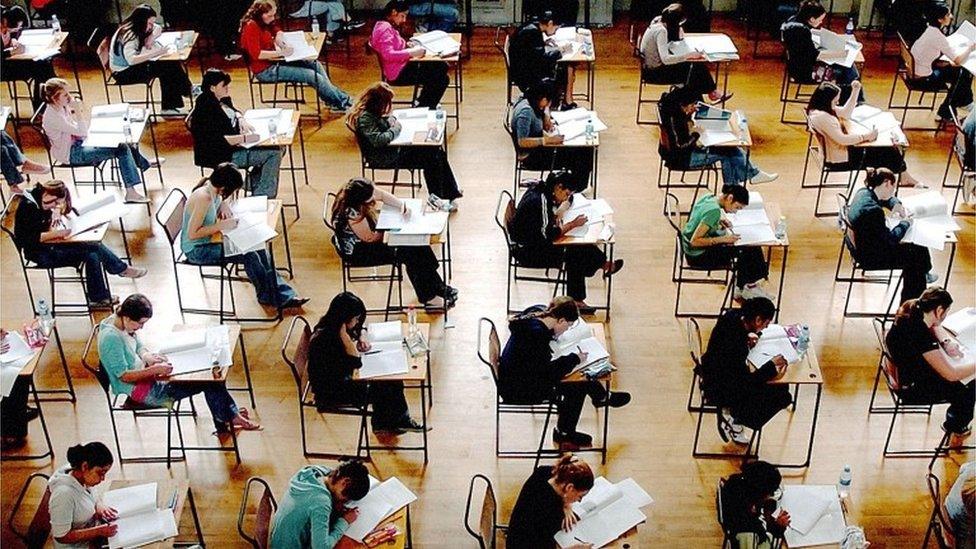
Individual universities and the sector as a whole were set targets to increase the number of disadvantaged students long before 2030 - they were set in a report published last year by a government commission on widening access:
By 2021, 10% of first-year students at each individual university in Scotland should come from a disadvantaged area
By 2021, 16% of first-year students at Scottish universities collectively should come from a disadvantaged area
By 2026, 18% of first-year students at Scottish universities collectively should come from a disadvantaged area
Shirley-Anne Somerville, minister for further education, higher education and science, welcomed the report but said she feared the measures would not be enough to achieve those targets.
She said: "This government has made it a priority to ensure every child has an equal chance to go to university.
"The Widening Access Commission's Blueprint for Fairness made clear that achieving this would need government, universities, colleges and the wider public sector to act in the short term to address current approaches and policies as well as in the longer term, to introduce system-wide change."
'Shared agenda'
She added: "I welcome Universities Scotland's report. It moves us forward in our shared agenda to widen access.
"I am particularly pleased that universities will now act to ensure that every young person with experience of care who meets minimum entry requirements will be offered a university place.
"But I am concerned that the report's recommendations will not allow universities to meet the timescales and policy challenges contained in the Widening Access Commission's final report."
As a general rule, the institutions which became universities in the 1990s have more students from disadvantaged backgrounds than the others. Twenty per cent of students at Glasgow Caledonian University and the University of the West of Scotland already come from disadvantaged areas.
However, all universities insist they are committed to attracting a wide range of student and widening access.
They have long argued this is about far more than helping youngsters get the exam results they need or encouraging them to apply.
Some actively work with children in primary schools in disadvantaged areas as well as secondary school students.
The aim is to help foster the idea that university is a realistic long-term goal and support those who may have misconceptions about university because they have no friends or relations who are graduates.
- Published4 February 2016
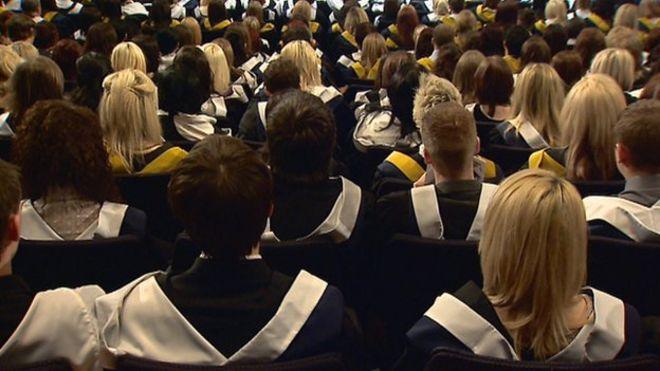
- Published29 August 2017
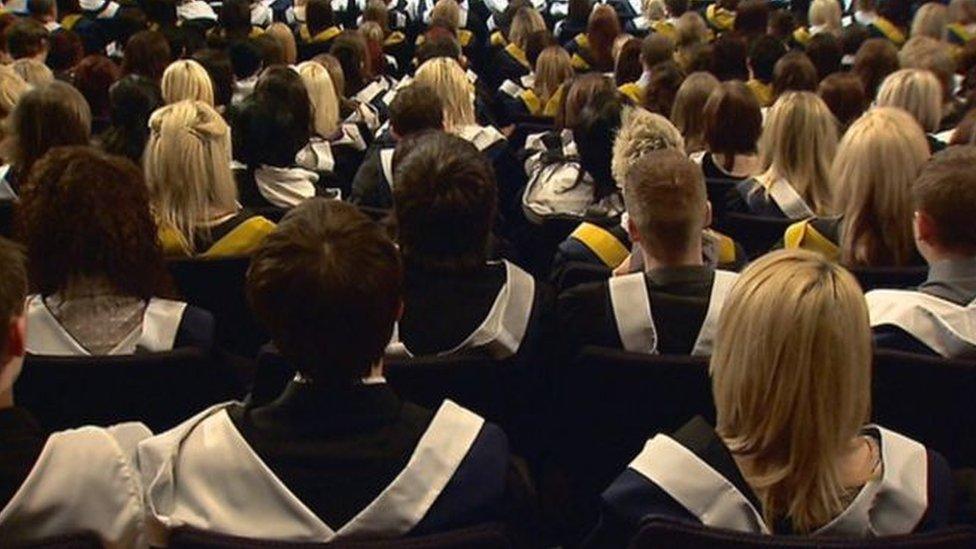
- Published3 December 2012
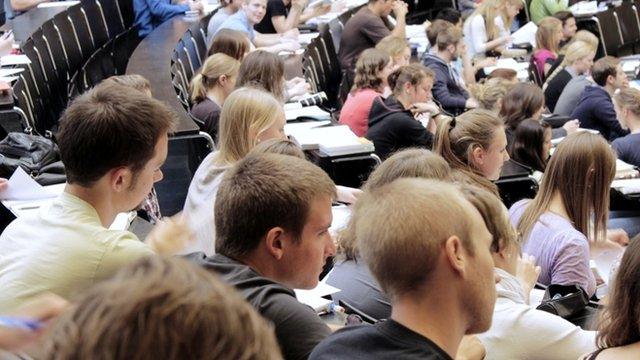
- Published25 July 2012
